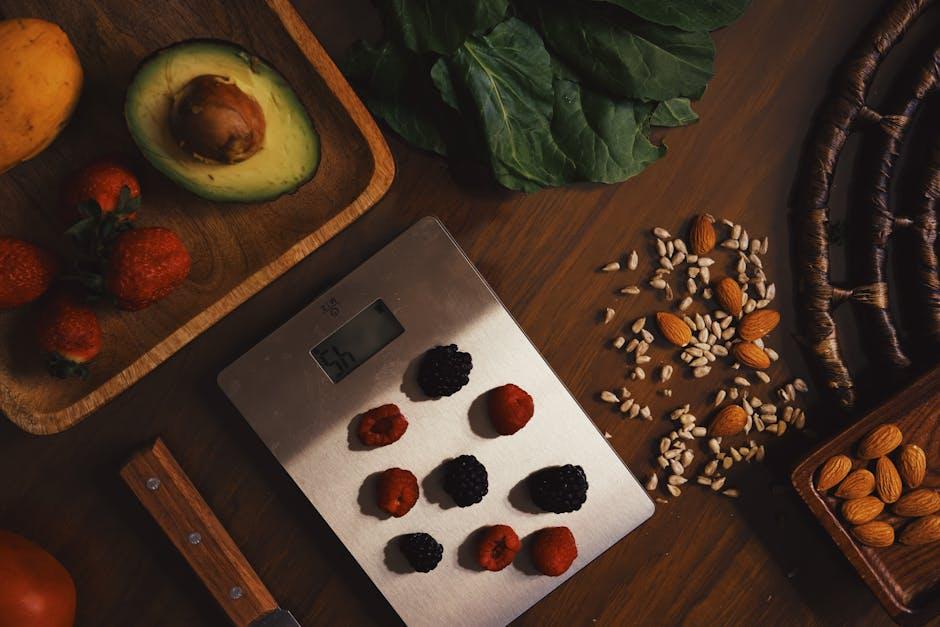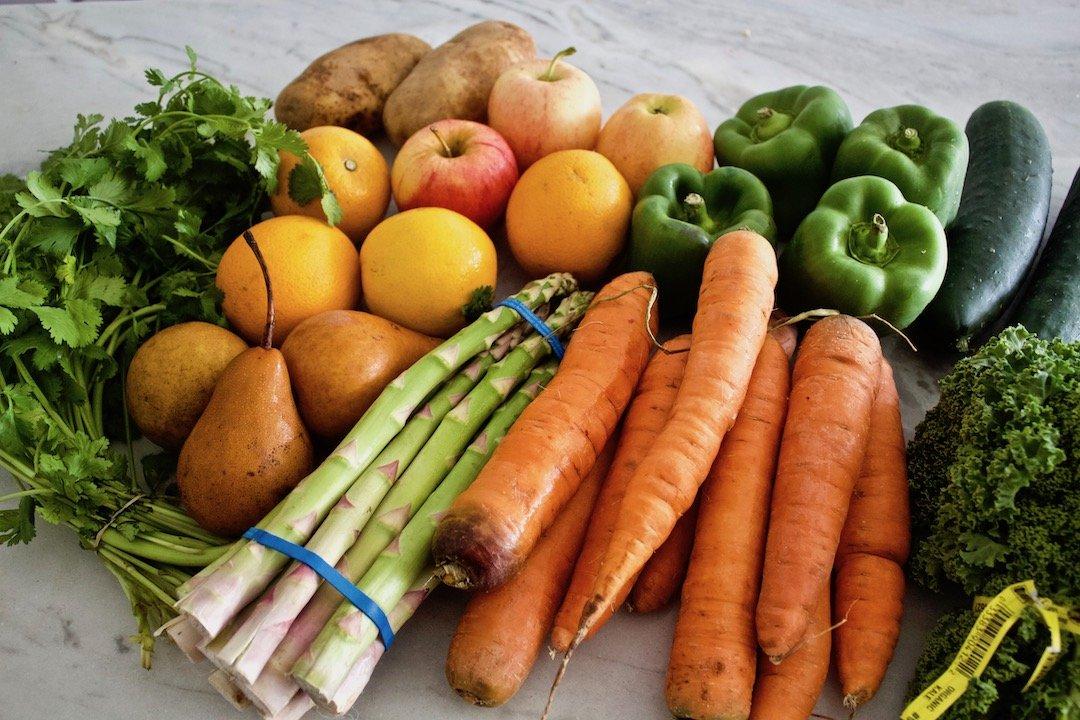In the ever-evolving landscape of weight loss strategies, meal replacement shakes have emerged as a popular option for those seeking a speedy and convenient path to slenderness. Promising simplicity in a bottle, these shakes have garnered attention from busy professionals, fitness enthusiasts, and anyone looking to shed a few pounds. But can relying solely on these liquid meals actually yield significant weight loss results? In this exploration, we delve into the experiences of individuals who embraced a diet consisting entirely of meal replacement shakes, uncovering not only their physical transformations but also the psychological and nutritional implications of such a regimen. Join us as we investigate the question: Can you really lose weight drinking only meal replacement shakes? Here’s what happened.
Exploring the Science Behind Meal Replacement Shakes and Weight loss
Meal replacement shakes are designed to provide a balanced blend of protein, carbohydrates, fats, vitamins, and minerals. Their convenience and calorie control have made them popular in weight loss programs. When consumed as directed, meal replacements can create a calorie deficit, wich is essential for weight loss. Here are a few key components that contribute to their effectiveness:
- Caloric Control: Most meal replacement shakes are lower in calories than conventional meals.
- Protein Content: High-protein content can enhance satiety, helping to curb cravings and hunger.
- Nutrient Density: Many shakes are fortified with essential vitamins and minerals,ensuring nutritional needs are met.
However, it’s important to understand that relying solely on meal replacement shakes may not be a sustainable long-term solution for weight management.The body thrives on a diverse array of nutrients that comes from whole foods. Some potential downsides include:
- Monotony: Drinking the same shakes regularly can lead to taste fatigue.
- Social interaction: Meals often serve as social gatherings, and missing out on these can effect mental well-being.
- Digestive Health: A lack of whole foods may impact gut health due to lower fiber intake.
Ultimately, while meal replacement shakes can be a useful tool for weight loss, incorporating a variety of whole foods into your diet is crucial for long-term success and overall health.

Assessing Nutritional Balance: Are You Missing Essential Ingredients?
Embarking on a journey solely fueled by meal replacement shakes raises critical questions about nutritional adequacy. Many individuals find themselves swept away by the convenience and the promise of effective weight loss, but it’s crucial to delve deeper into essential nutrients that might be lacking. Meal replacements, while fortified, may not provide a comprehensive balance of nutrients needed for optimal health, sometimes leaving deficiencies in:
- Fiber: essential for digestive health and satiety.
- Vitamins and Minerals: Key for various bodily functions and preventing deficiencies.
- Healthy Fats: Important for hormone production and nutrient absorption.
- Proteins: Needed for muscle maintenance and repair.
To better understand what might potentially be missing, here’s a comparative breakdown of nutrients typically found in whole foods versus meal replacement shakes:
| Nutrient | Whole Foods | Meal Replacement Shake |
|---|---|---|
| Fiber | High (e.g., fruits, vegetables, whole grains) | Low |
| Vitamins | Varied (e.g.,leafy greens,nuts) | Fortified |
| Essential Fatty Acids | Rich (e.g., avocados, fatty fish) | Minimal |
| Protein Quality | Complete (e.g., eggs, legumes) | Variable |
Incorporating a variety of foods not only enriches your diet but also ensures you’re meeting your body’s needs. Prioritizing food diversity guarantees that nutrient requirements are met, promoting longer-term health benefits alongside any weight-loss goals. If you’re leaning towards meal replacements as a primary source of nutrition, consider supplementing them with whatever whole foods you can integrate into your meals to achieve a more nutritionally balanced approach.

The Psychological Impact of Relying Solely on Shakes
Reliance on meal replacement shakes can lead to a complex psychological landscape. For many individuals, the initial excitement of a shake-based diet brings a sense of control and simplicity to their weight loss journey. Though, as the novelty wears off, feelings of deprivation may set in. This can manifest in various ways, such as an obsession with food, anxiety around eating, or disconnect from the body’s inherent hunger cues. People who depend solely on shakes may start to associate food strictly with guilt or reward,prompting unhealthy eating behaviors once “real” meals are reintroduced.
Moreover, the social implications of a shake-only regimen cannot be overlooked. Shared meals frequently enough form a core part of social interactions, and the exclusion from traditional dining experiences can create feelings of isolation.Individuals in this situation might experience symptoms such as:
- Social withdrawal: Skipping gatherings or events centered around food.
- Food fixation: Increased preoccupation with food despite not consuming traditional meals.
- Emotional instability: Fluctuations in mood due to nutrient deficiencies and restricted diets.
Maintaining mental wellness while navigating a shake-based diet is crucial, as psychological stress can undermine overall health and lead to unsustainable habits. Incorporating occasional whole foods may mitigate these risks, promoting a balanced relationship with diet and enhancing emotional well-being.

Practical Tips for Transitioning to a Sustainable Eating Routine
Transitioning to a sustainable eating routine involves mindful choices that not only promote health but also benefit the planet. Start by focusing on whole foods, which are minimally processed and rich in nutrients. Incorporating a variety of fruits, vegetables, whole grains, and legumes can help you create balanced meals. Here are some tips to simplify this process:
- Plan Your Meals: Set aside time each week to plan your meals. This helps avoid impulse purchases and food waste.
- Shop Local: Whenever possible, buy from local farmers’ markets.This supports local agriculture and reduces transportation emissions.
- Batch Cook: Prepare your meals in bulk and store them in portions. This saves time and encourages healthier choices throughout the week.
Another effective strategy is to gradually replace less sustainable ingredients with more eco-amiable alternatives. as a notable example, consider swapping conventional dairy with plant-based options or reducing meat consumption by incorporating meatless meals into your week. to help visualize this shift, here’s a simple comparison table:
| Conventional Ingredient | Sustainable Alternative |
|---|---|
| Regular milk | Almond or oat milk |
| Beef | Lentils or chickpeas |
| White rice | Quinoa or brown rice |
By making these small yet significant changes, you can cultivate a sustainable eating routine that not only helps in your personal health journey but also contributes to a healthier planet.
Future Outlook
while the idea of relying solely on meal replacement shakes for weight loss may seem like an easy and appealing option, the reality is much more nuanced. Our journey through the effects of these shakes reveals their potential to assist in weight management, but it also underscores the importance of a balanced approach to nutrition. Examining the impact on metabolism,satiety,and long-term sustainability paints a clearer picture of what it truly means to lose weight healthily. As you contemplate your own weight loss strategy, remember that the path to wellness is multifaceted and individual. Whether you choose to include meal replacement shakes in your diet or seek other avenues, the key lies in finding what works best for your unique lifestyle and health goals. the quest for balance continues, but armed with the right knowledge, you can navigate your way to a healthier, happier you.



